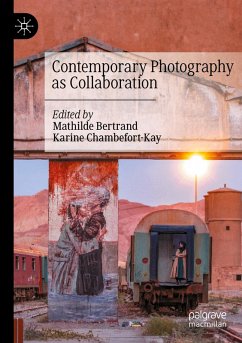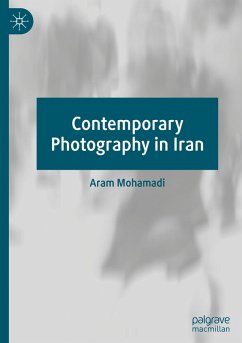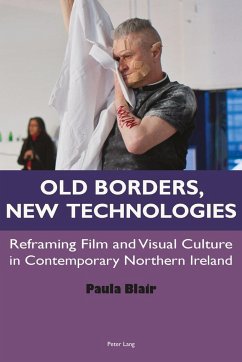
Contemporary Photography as Collaboration

PAYBACK Punkte
49 °P sammeln!
This book explores a spectrum of contemporary photographic practices across the fields of image-making, curating, archiving, teaching, community development and activism that have envisioned photography as ontologically and ethically collaborative. By looking specifically into the contexts where collaborative projects are produced and shown, and into the dialogical relation to the people they engage with -in hospitals, in prisons, in working-class neighbourhoods, with indigenous people, refugees, women, persons experiencing homelessness, young people- the contributions from practitioners, scho...
This book explores a spectrum of contemporary photographic practices across the fields of image-making, curating, archiving, teaching, community development and activism that have envisioned photography as ontologically and ethically collaborative. By looking specifically into the contexts where collaborative projects are produced and shown, and into the dialogical relation to the people they engage with -in hospitals, in prisons, in working-class neighbourhoods, with indigenous people, refugees, women, persons experiencing homelessness, young people- the contributions from practitioners, scholars, and curators show participatory practices to create the conditions for building new subjectivities, or making visible a multiplicity of identities, thus opening up a new politics of visibility. Therefore, this book specifically addresses the political, counter-cultural dimension of collaborative projects, but also their subversiveness in relation to dominant practices within the field ofphotography: this includes a reinvention of the position of the photographer -in turns facilitator or project leader- of curating and exhibition models, of archiving methodologies, of photographic education and of market practices.












